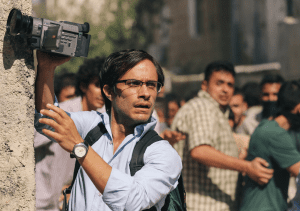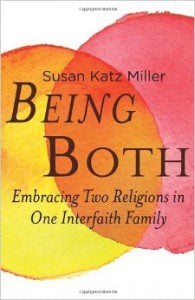 |
|
Common anger, uncommon causes
|
Is there today a “Muslim revolt” that stretches from Borneo to Birmingham and Brooklyn?
In a 1992 lecture at the American Enterprise Institute, political scientist Samuel Huntington formulated the seed of this idea in his infamous “Clash of Civilization” thesis. Crude to the point of caricature, Huntington’s thesis is nevertheless immensely powerful. Critics of its weak verisimilitude fail to see its resonance. The very indifference of Huntington’s delineations to empirics, its wallowing in stereotypes and blinkered abstraction, made the thesis especially attractive to politicians who sought to paint themselves as embattled victims confronting a hostile world. Simple tales are more powerful than nuance.
The events of September 2001 merely amplified the latent power of the “clash” narrative. Al Qaeda appealed to religious solidarity and invoked the specter of a lost Caliphate as a path to ambitious, transnational political power. President Bush cast about for enemies “out there” to obviate the need to fight “here.” Both, in their different ways, were heirs apparent to Huntington, intent on giving substance to the Harvard academic’s bathetic fantasy of Armageddon.
Has President Obama repudiated the ideas of Harvard’s most notorious political scientist? As befits a politician who has made his short career by being all things to all people, there is evidence on both sides of the matter. On the one hand, the White House’s rhetorical de-escalation – most importantly, abandonment of the “war on terror” moniker -and the President’s high profile June in speech suggest a sharp break from his predecessor. On the other hand, under Obama there is little evidence of change on defining international-relations questions or on matters related to American Muslims’ civil liberties. The words may have changed but perhaps the song remains the same.
And what of the other side? To what extent has bin Laden been successful? A Gallup poll conducted in forty countries (PDF) that are predominantly Muslim or have large Muslim communities found scant evidence of successful political mobilization (and was pilloried by the right-wing press as a result). Of course, the gap between the sheer number of Muslims living around the world and the comparatively miniscule volume of political violence ought on its own to shed some light on the topic, if anyone cared to look.
BBC journalist Roger Hardy’s book The Muslim Revolt: A Journal Through Political Islam appears to take the Huntington side in the debate. But the title is misleading—neither the substance of Hardy’s observations nor his eventual conclusion support, let alone compel, the conclusion that there is a coherent political formation that we could call a “Muslim revolt.”
Hardy’s useful, but superficial book is a brisk canter across the major population centers of Islam, an “around the world in 80 suras” so to speak. For thirty years, Hardy has reported for the BBC and other news sources from around the world. He has therefore visited the diverse parts of the Muslim world, beginning in Egypt and ending in Europe, that the book descends upon. Indeed, the narrative is interspersed with side-portraits and anecdotes from Hardy’s travels from the dissident Iranian cleric to the impoverished Saudi taxi driver. As these examples should suggest, one of the functions the anecdotes play in Hardy’s book is to disrupt expectations and to undermine stereotypes that haunt particular countries.
Regrettably, it seems that Hardy was persuaded to keep the local color to a minimum, and to devote the bulk of each chapter to a thumbnail sketch of a country or region. In the case of southeast Asia and Europe, this yields a neck-jolting tour around each portion of the world in some twenty-odd pages. The end result is a bit like Lonely Planet without the puppyish enthusiasm and with a bit more politics: Perfect for the college student with little time and attention, but less enlightening for anyone versed in the field. (The chapters focused on single countries do a bit better. The Saudi chapter, for instance, has a nice potted history of confrontations between an emerging branch of al Qaeda and the Saudi monarchist state. Regrettably, Hardy’s book was completed before the recent attention on Yemen, and so scants that country).
This is a shame. Whoever the editor was who directed or endorsed Hardy’s decision to keep the anecdotes to a minimum made a grave error. Even the snippets of back story Hardy provides are more haunting and telling than the elementary historical material he aggregates. Hardy is a gifted journalist and a sympathetic listener. (I met him once at a conference some years ago, but otherwise have no connection to him). What might have been a truly fascinating book, mining Hardy’s extensive experience, is anodyne – an airport read if not for the TSA-unfriendly title.
This is all the more a shame because the takeaway from Hardy’s mosaic portrait so unequivocally belies the implications of his title. Certainly, Hardy shows, Muslims around the world are engaged in politics. And to be sure, they, like anyone else, bring to the table their deepest religious commitments. (Spend a few minutes tuned to Fox News and this will not seem a startling proposition). But this does not mean that there is a unified entity called “political Islam.”
To the contrary, Hardy shows that what gets called “political Islam” is in fact highly variegated and contingent on local politics. Villagers in southern Thailand, beurre teenagers in the Parisian suburb of Clichy-sous-Bois, and Turkish schoolgirls may all reach for Islam in their accounts of local struggles for dignity, rights or sheer survival. But that does not mean they should be clumped together as a single movement. They simply do not share in any meaningful way in a common political program.
This may be little more than common sense to those who live in the supposed cores of the “revolt.” But any incremental gain in sense is a welcome relief against the towering morass of tendentious, ignorant and downright bigoted rubbish that passes for terrorism-related “expertise” today. That Hardy’s book could have been more and done more should not detract from the important, if perhaps obvious, lesson that it does have.
Aziz Huq is an assistant professor of law at the University of Chicago Law School.











